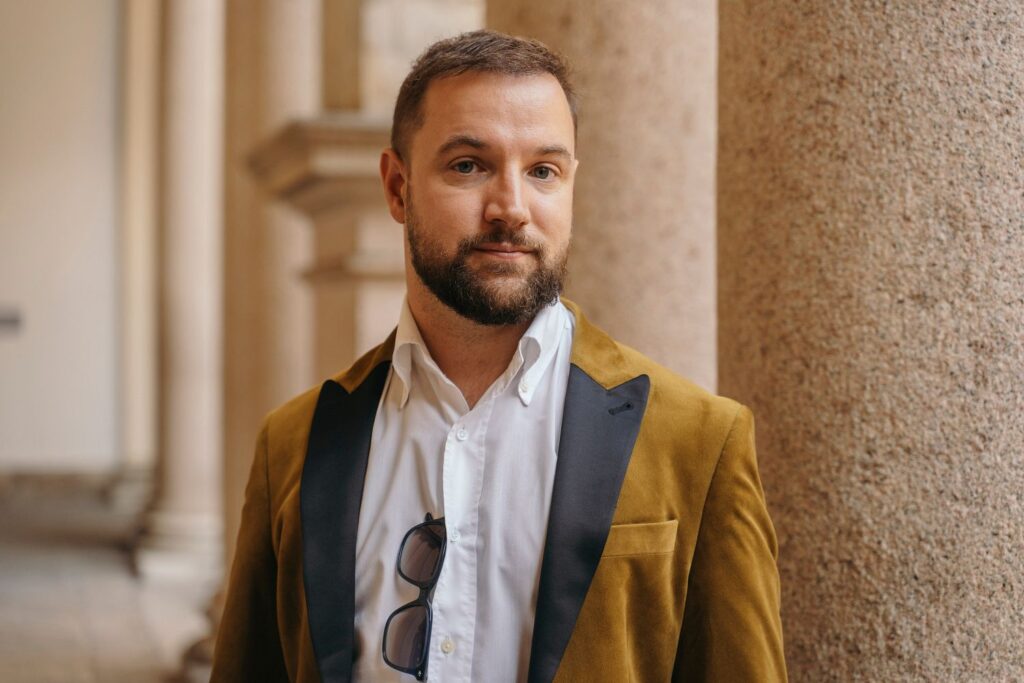Luxury branding is a world where products become symbols of aspiration and identity. You might think it is just about expensive materials and sleek designs. Yet the real difference is emotional—research shows that brand attachment in luxury markets is built on deep psychological bonds, not just price tags or logos. This focus on emotional connection flips the script on how brands capture loyalty and recognition.
Table of Contents
- Defining Luxury Branding: What Sets It Apart
- The Importance Of Emotional Connection In Luxury Branding
- Key Elements That Shape Effective Luxury Branding
- Real-World Examples Of Luxury Branding Success
- Future Trends In Luxury Branding Best Practices
Quick Summary
| Takeaway | Explanation |
|---|---|
| Luxury branding creates emotional connections. | Emotional ties elevate luxury brands beyond product selling, transforming them into vital personal experiences for consumers. |
| Strategic exclusivity enhances brand desirability. | Controlled scarcity and brand positioning turn luxury items into coveted symbols of achievement and lifestyle sophistication. |
| Crafting compelling narratives is crucial. | Effective luxury branding relies on intricate storytelling that resonates with consumer identities, making products symbols of aspiration. |
| Sustainability is essential for modern luxury brands. | Forward-thinking luxury brands are integrating sustainability into their core identity, reflecting social responsibility and conscious consumption. |
| Technological trends shape future luxury experiences. | Emerging technologies like AR, AI, and blockchain will redefine luxury interactions, creating personalized, immersive brand experiences. |
Defining Luxury Branding: What Sets It Apart
Luxury branding transcends traditional marketing approaches by creating an exclusive ecosystem of perceived value, emotional connection, and extraordinary experiences. Unlike standard product marketing, luxury branding builds a comprehensive narrative that transforms products from mere commodities into symbols of aspiration, prestige, and personal identity.
The table below outlines distinctive features that set luxury branding apart from standard product marketing approaches, highlighting how luxury brands create greater perceived value and deep emotional resonance.
| Feature/Characteristic | Luxury Branding | Standard Product Marketing |
|---|---|---|
| Emotional Connection | Builds psychological and emotional bonds | Focuses on transactional value |
| Product Utility | Transcends functionality | Emphasizes functional benefits |
| Distribution | Controlled and limited | Wide and accessible |
| Brand Narrative | Strong heritage, storytelling, aspiration | Product-focused communication |
| Exclusivity | High, with managed scarcity | Low, promotes mass-market accessibility |
The Essence of Luxury Brand Identity
At its core, luxury branding is about crafting a distinctive psychological and emotional landscape that elevates products beyond their functional utility. According to research published in SAGE Open, luxury brands distinguish themselves through several critical characteristics:
- Exceptional craftsmanship and quality
- Controlled and limited distribution
- Strong heritage and storytelling
- Symbolic and aspirational value
- Profound emotional resonance with consumers
These elements work synergistically to create an unparalleled brand experience that goes far beyond traditional transactional relationships.
![]() Learn more about the nuanced world of luxury brand experiences and how they meticulously construct their unique positioning.
Learn more about the nuanced world of luxury brand experiences and how they meticulously construct their unique positioning.
Psychological Dimensions of Luxury Perception
Luxury brands strategically leverage psychological principles to establish their market position. They understand that consumers do not merely purchase products but invest in narratives, status symbols, and personal transformational experiences. By creating an aura of exclusivity and exceptional quality, luxury brands trigger deep-seated human desires for recognition, belonging, and self-actualization.
The psychological framework of luxury branding involves sophisticated storytelling that connects individual consumer identities with brand mythologies. This approach transforms products from material objects into powerful representations of personal achievement, taste, and sophisticated lifestyle choices. Through carefully curated brand communication, luxury brands construct intricate emotional landscapes that resonate with their target audience’s aspirations and self-perception.
The Importance of Emotional Connection in Luxury Branding
Emotional connection represents the critical differentiator that transforms luxury brands from mere product providers to profound personal experiences. These brands do not simply sell items but create intricate psychological narratives that resonate deeply with consumers’ innermost aspirations and self-perceptions.
Psychological Architecture of Brand Attachment
Luxury brands strategically construct emotional connections through sophisticated psychological mechanisms. According to research in the Journal of Fashion Marketing and Management, brand attachment emerges from multidimensional interactions that go beyond functional benefits:
- Corporate associations that reflect consumer values
- Symbolic representations of personal identity
- Functional benefits that exceed basic product utility
- Emotional pathways that create profound brand loyalty
- Experiences that validate personal narratives
These dimensions work synergistically to establish a deep psychological bond between consumer and brand.
Below is a table summarizing the key psychological elements that luxury brands use to create deep, lasting emotional connections with consumers.
| Psychological Element | Description |
|---|---|
| Corporate Association | Reflects the values and image that align with consumer aspirations |
| Symbolic Representation | Serves as a symbol of personal identity and social status |
| Functional Benefits | Offers benefits that exceed basic product utility, emphasizing superior quality |
| Emotional Pathways | Builds profound loyalty through resonant emotional experiences |
| Validation of Personal Narratives | Reinforces and validates the consumer’s self-story and life achievements |
Explore the intricate world of luxury brand storytelling to understand how these connections are meticulously crafted.
Transformative Emotional Experiences
Emotional connections in luxury branding transcend traditional marketing strategies by creating transformative experiences. Brands do not merely sell products but offer gateways to personal transformation, status elevation, and self-actualization. By understanding and anticipating consumers’ deepest psychological needs, luxury brands construct narratives that make purchasing an act of personal expression rather than simple transaction.
Key Elements That Shape Effective Luxury Branding
Luxury branding represents a sophisticated art form that demands strategic precision and profound understanding of consumer psychology. Successful luxury brands do not simply create products but meticulously craft entire ecosystems of desire, aspiration, and exceptional experience.
Foundations of Luxury Brand Architecture
The architectural framework of luxury branding rests on several critical pillars that distinguish exceptional brands from ordinary market offerings. Strategic differentiation emerges through carefully curated elements that transcend traditional marketing approaches:
- Uncompromising quality and craftsmanship
- Carefully controlled brand narrative
- Precise audience targeting
- Consistent sensory and emotional experiences
- Strategic rarity and exclusivity management
Discover deeper insights into luxury consumer behavior to understand the intricate psychological mechanisms driving premium brand engagement.
Strategic Exclusivity and Positioning
Luxury brands strategically leverage controlled scarcity and precise positioning to maintain their elevated market status. This approach involves creating deliberate barriers that transform products from mere commodities into coveted symbols of personal achievement and sophisticated lifestyle. By meticulously managing brand perception, luxury brands construct intricate narratives that resonate with consumers’ deepest aspirational impulses.

Real-World Examples of Luxury Branding Success
Luxury branding success emerges from strategic narratives that transcend traditional marketing approaches, transforming brands into cultural icons that resonate deeply with sophisticated consumers. The most exceptional luxury brands do not merely sell products but craft immersive experiences that capture imagination and emotional aspiration.
Strategic Narrative Development
According to research exploring emerging luxury branding strategies, successful luxury brands navigate complex market dynamics through innovative storytelling and adaptive positioning. Remarkable luxury brands distinguish themselves through several key strategies:
- Authentic heritage communication
- Consistent brand mythology
- Precision in brand experience design
- Nuanced cultural responsiveness
- Technological innovation integration
Explore deeper insights into sophisticated consumer behavior to understand the intricate psychological mechanisms driving premium brand engagement.
Global Adaptation and Brand Positioning
Contemporary luxury brands demonstrate remarkable agility in tailoring their narratives to diverse global markets. By understanding subtle cultural nuances and consumer preferences, these brands create localized yet globally consistent brand experiences that maintain their core identity while resonating with specific regional audiences. The most successful luxury brands view geographical expansion not as simple market penetration but as an opportunity for rich, contextual brand storytelling.
Future Trends in Luxury Branding Best Practices
The landscape of luxury branding is undergoing a profound transformation, driven by technological innovation, evolving consumer expectations, and global socioeconomic shifts. Successful luxury brands must now navigate an increasingly complex ecosystem that demands authenticity, sustainability, and deep emotional intelligence.
Technological Integration and Experiential Design
According to research from IMD’s Luxury 2050 initiative, future luxury branding will be characterized by unprecedented technological and experiential integration. Emerging trends indicate a strategic shift towards immersive, personalized brand experiences:
- Advanced digital personalization technologies
- Augmented and virtual reality brand interactions
- Blockchain authentication for product provenance
- AI driven personalized customer experiences
- Seamless omnichannel brand engagement
Explore the top luxury marketing trends for the coming years to understand how brands are reimagining their strategic approach.
Sustainability and Ethical Positioning
Contemporary luxury brands are recognizing that sustainability is no longer optional but a fundamental brand imperative. The most forward thinking luxury brands are integrating environmental and social responsibility into their core narrative, transforming traditional perceptions of luxury from conspicuous consumption to conscious, meaningful engagement with global challenges.
Bring World-Class Luxury Branding to Your Business Now
Are you struggling to turn your brand into a true symbol of aspiration and emotional connection, as described in our article on luxury branding best practices? If so, you are not alone. Many premium brands face challenges with crafting a distinctive identity, building lasting emotional resonance, and achieving the strategic differentiation needed to excel in today’s competitive market. At Corrado Manenti, our expertise in Marketing Mode will help you solve these very problems with psychology-driven strategies tailored for the luxury sector.

Experience what happens when deep consumer insight meets innovative, detail-oriented strategy. Let Corrado Manenti guide your brand to create magnetic, emotionally charged connections that last. Take action today and visit https://corradomanenti.it for a personalized consultation and discover more about our Personal Branding expertise designed specifically for fashion, luxury, and lifestyle success.
Frequently Asked Questions
What defines luxury branding?
Luxury branding is a marketing approach that creates an exclusive perception of value and emotional connection, transforming products into symbols of aspiration, prestige, and personal identity.
What are the key elements of effective luxury branding?
Effective luxury branding includes uncompromising quality, controlled brand narrative, precise audience targeting, consistent emotional experiences, and managing strategic exclusivity.
How do luxury brands create emotional connections with consumers?
Luxury brands create emotional connections through sophisticated storytelling, aligning their brand narratives with consumers’ personal identities and aspirations, thereby fostering deep psychological attachments.
Why is sustainability important in luxury branding?
Sustainability is crucial because modern consumers expect luxury brands to engage in environmental and social responsibility, transitioning perceptions of luxury from conspicuous consumption to conscious engagement with global challenges.



